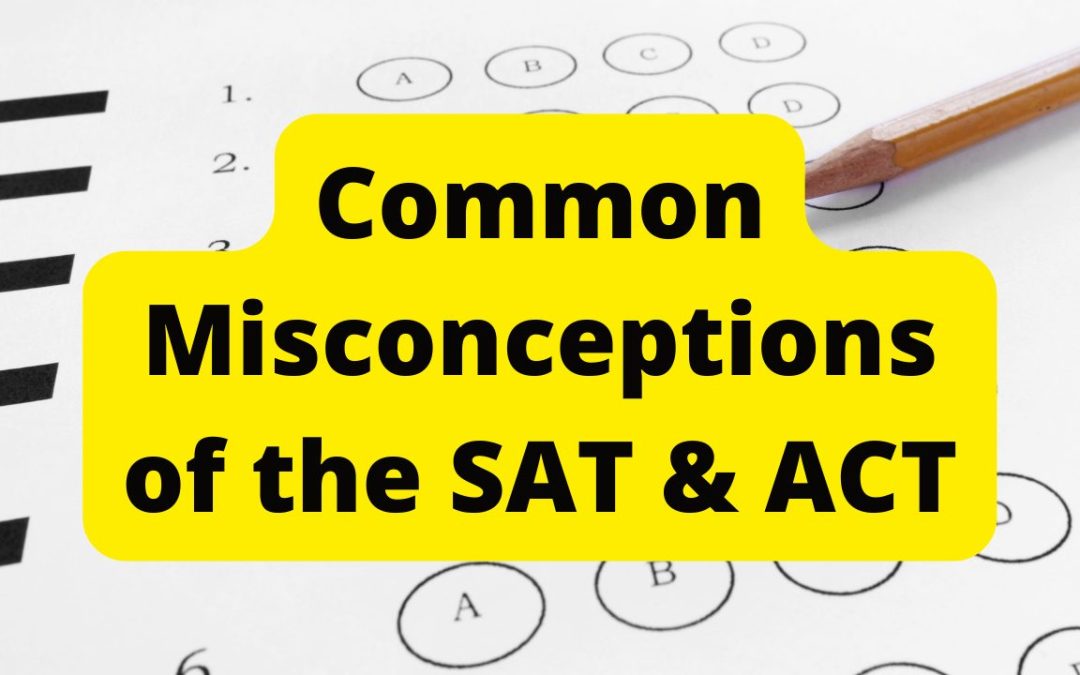Although the SAT and ACT tests are required for high school students, there are many myths and misconceptions about the tests. Even if students are studying for them non-stop, they may have a misunderstanding around their results. Here are some of the top misconceptions your teenager may have around these tests.
Your Score Is Your Direct Intelligence
High schoolers are heavily prepared for these standardized tests, often within school time and outside with tutors and workbooks. They are told how important the tests are for their future, which they can be, but may not be explained why they are so important. Thus, students start to believe that the test is a direct representation of how smart they are. But this is not the case. The SAT and ACT are a means of easy recognition for colleges and other higher education institutions to see where a student lands in academia. Yes, to a certain degree, it shows how “smart” you are with a scaled test result, but it’s designed to better analyze your reasoning skills and logic.
Your Score Also Determines What School You’ll Attend
Along with the last myth, a lot of students start to feel the pressure that if they don’t get a good ACT or SAT score, no university or college will accept them. Colleges and universities do utilize these scores high on their criteria list, but it’s more for confirming that you will excel as a student there. If it’s a lower score, they may feel like the world of college might be a little overwhelming for students, but it’s also not the only criteria they use. Colleges also look at your GPA and other scholarly accomplishments, as well as sports and community engagement. The ACT and SAT are not the only factors for college admission.
You Have to Answer Every Question
Students may think that they must answer every question on the test, otherwise they will get a low score, or “fail”. But this is not true! If you don’t know the answer to a question, it is better to skip it for the time being and continue along, as you may have a better idea of an answer later on. If you don’t come back to it at all and it’s blank when the time runs out, don’t fret. You can still get an ideal score that ranks well for colleges without answering every question.
Katie Kyzivat

